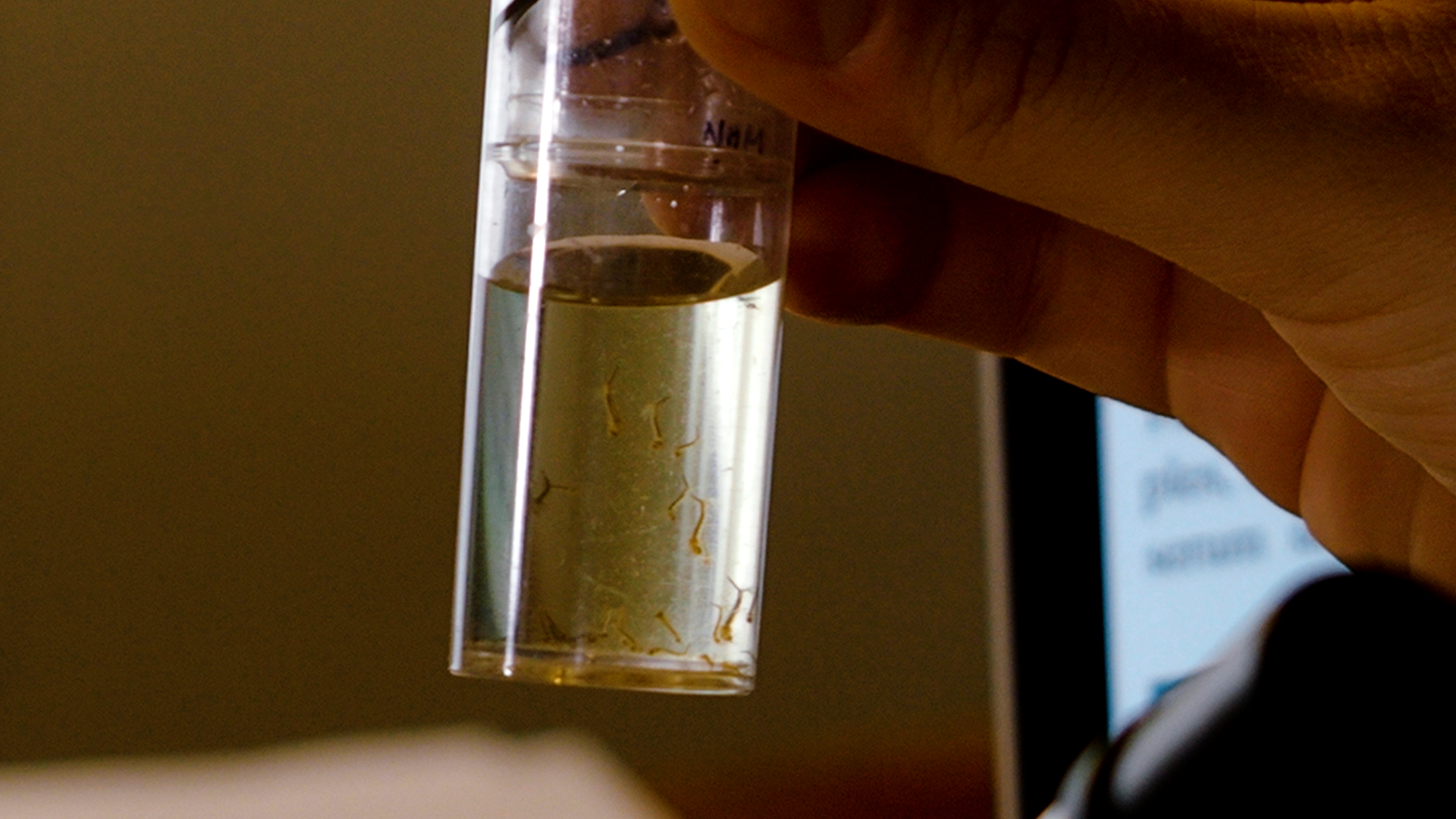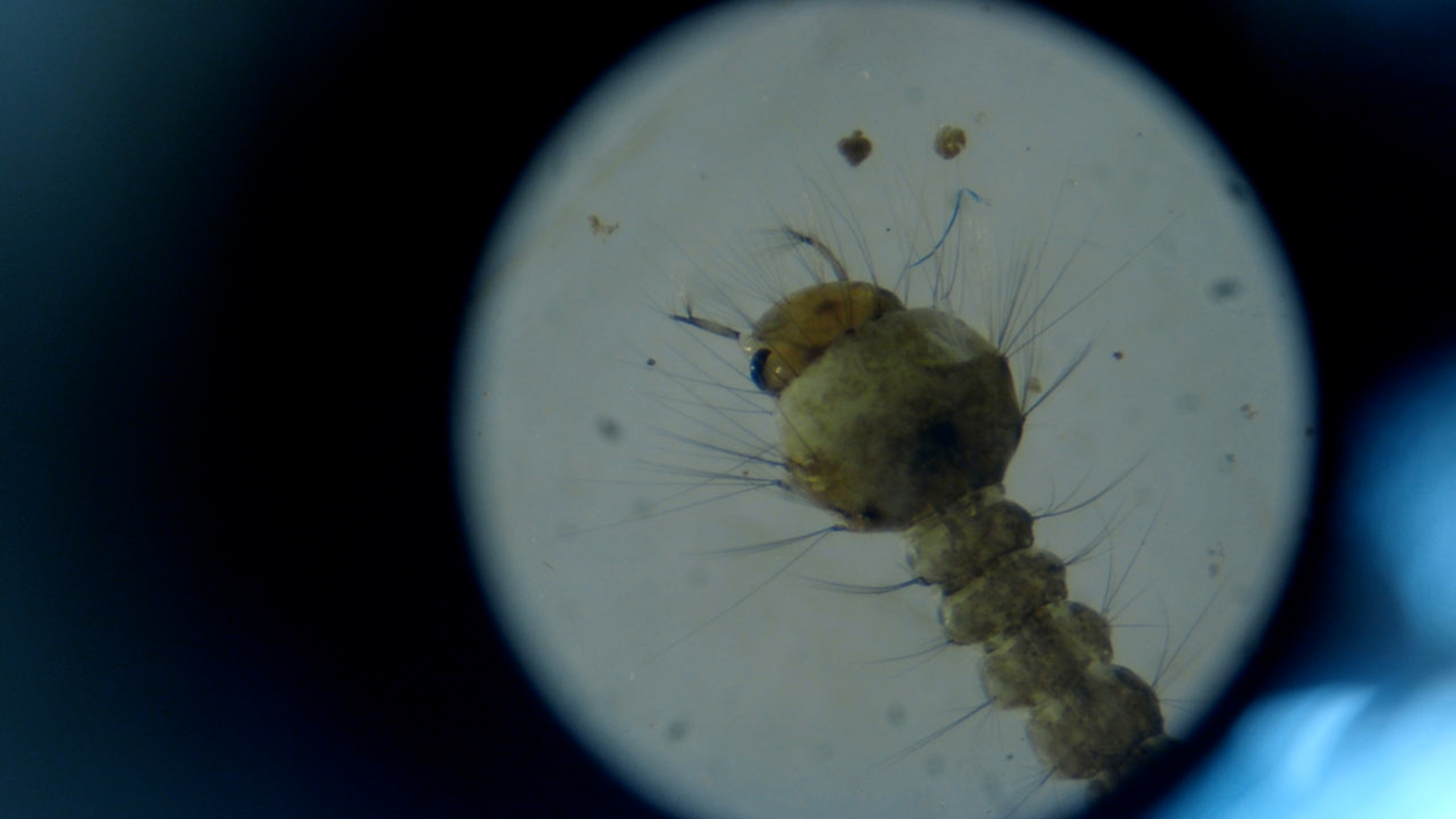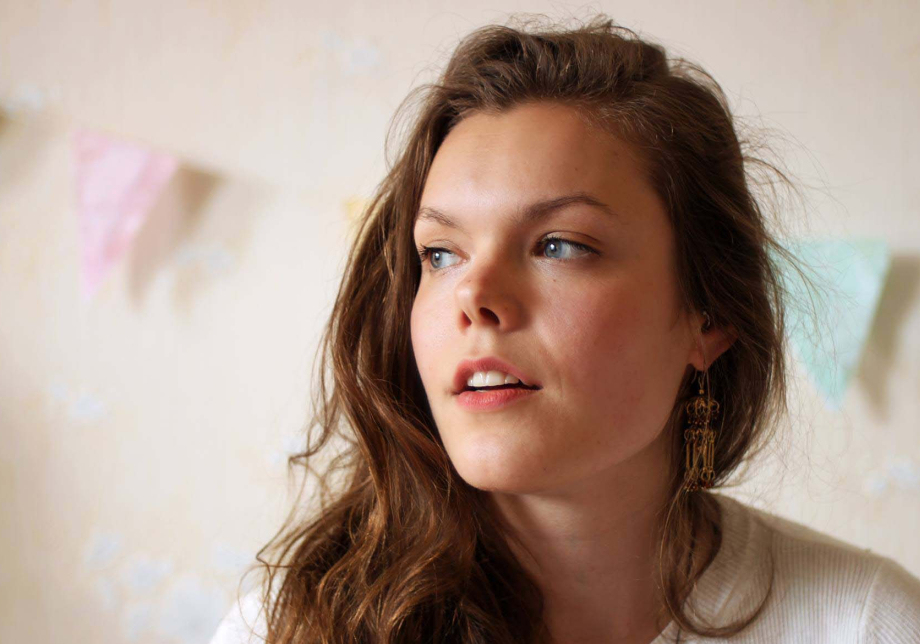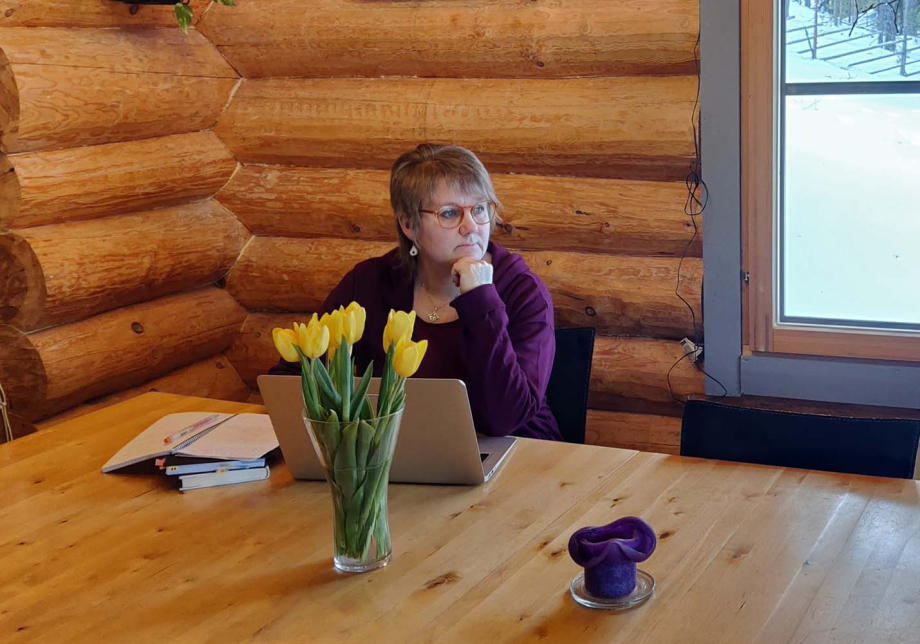Hanna Kaihlanen makes a short film about mosquitoes

Mosquitoes are small and seemingly harmless creatures, but in reality they are one of the most dangerous in the world for humans. Hundreds of thousands of people die every year from diseases spread by mosquitoes.
Hanna Kaihlanen’s interest in making the short film Hovering Over Us (2023) was sparked by the contradiction between the size of mosquitoes and the danger they pose, as well as by the technology developed to combat mosquitoes.
– Mosquitoes have been the subject of research because they spread dangerous diseases to humans. For example, mobile phone apps have been developed that can record the sound of mosquitoes and tell if a nearby mosquito is dangerous. To me, everything like that sounds like a sci-fi movie and is really fascinating.
According to Kaihlanen, who wrote the script and edited the short film, the work’s approach to the climate crisis is observational rather than taking a stand.
– Really, we can no longer talk about whether climate change will occur or not. I am interested in exploring the impact of global and other broad trends on individual people and their life cycles.
Hovering Over Us does not only deal just with the past or the present, but it also looks to the future.
– The starting point for the short film was to try to imagine what the advancing climate crisis means for us in practice. It does not mean that the world will suddenly be destroyed one day, but rather what means of adaptation we will have to adopt. For example, what means do we have that would allow us to still live here and what changes will climate change bring to our everyday lives.

Video material from YouTube
Kaihlanen collaborated with a small working group on the short film, including sound designer and composer Ville-Matti Koskiniemi, second editor Sini Kononen, cinematographer Charlotte Forsgård and actress Henriikka Heiskanen. Lorna Culverwell, a researcher specialising in mosquitoes, also participated in the project, providing Kaihlanen with background information and research equipment.
Hovering Over Us is a collage built from archival material that occupies the ground between documentary and fiction. Kaihlanen searched for the archival material used in the film especially on YouTube. She did not precisely plan the structure of the film, which was formed instead on the basis of the video material she found on the Internet.
– My way of working is experimental and editorially driven. The style, language and narrative of the film started to take shape while I was running the archive material in the editing software. At the same time, more ideas were generated.
The process of making the film was instructive for Kaihlanen. She learned a lot, for example, about the technology that has been developed to control dangerous infectious diseases carried by mosquitoes.
– It is inspiring that people have the potential to find solutions for anything. At the same time, it is discouraging how many things could be solved if only enough was invested in them. All that is lacking is the political will.

Art helps us imagine the future
Addressing environmental issues and the climate crisis through art has become increasingly common, especially in the 21st century. Kaihlanen believes that art plays a significant role in exploring such issues.
– A single work of art cannot change the world, but art in general has a huge significance on the kind of relationship a person has with the world and with other people. Art helps people understand things that they might not have even thought about otherwise.
According to Kaihlanen, art allows the climate crisis to be viewed differently than through mere facts.
– Unlike science and journalism, art has a different ability and freedom to imagine something that is not true as such or at least directly measurable by scientific means. This ability to imagine is needed in order to be able to visualise alternative scenarios and one’s own life and the future in relation to broader global trends.
While making Hovering Over Us, Kaihlanen became frustrated with how environmental issues are addressed.
– Things that represent a direct threat to humans are dealt with, but when it comes to the diversity of nature, then it is not so interesting and there are no solutions for it. The worldview that guides decisions is extremely human-centred.
The Arts Promotion Centre Finland (Taike) awarded Hanna Kaihlanen and her working group a project grant of 10,000 euros in 2022 for the production of the experimental documentary film.









